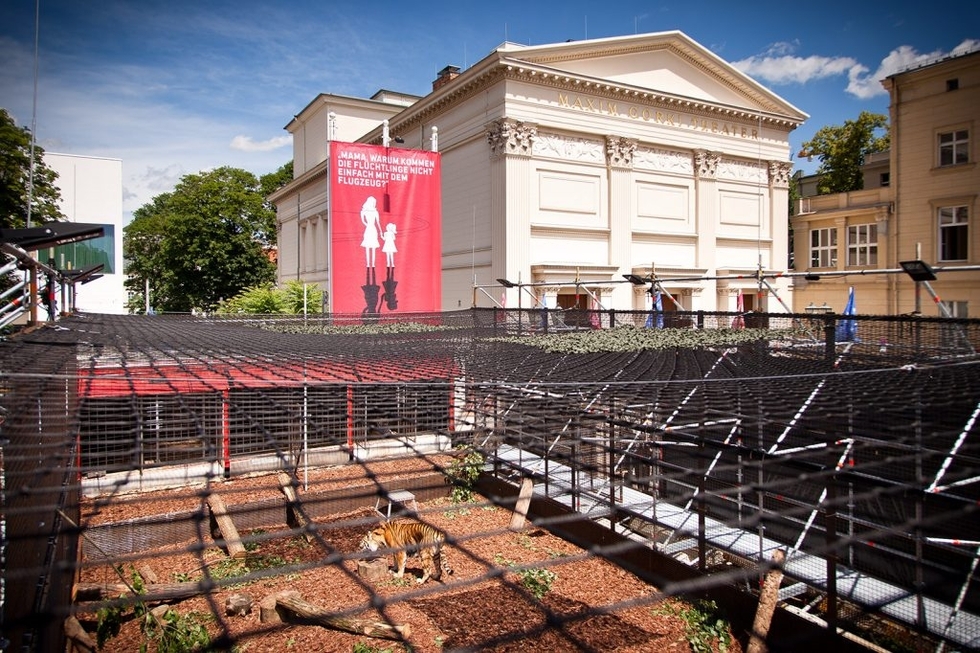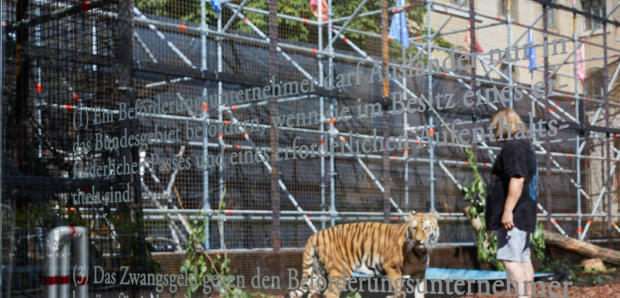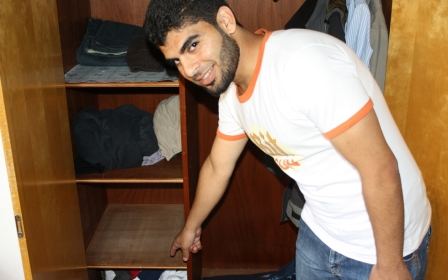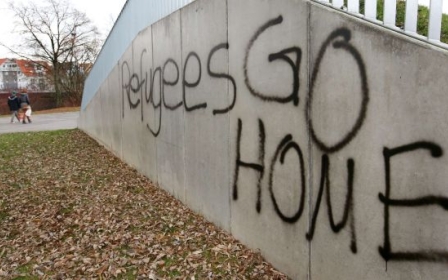Syrian actress offers herself to tigers in German refugee art protest

A Syrian actress has closed a controversial political art exhibition in Germany by offering herself as food to four Libyan tigers in a symbolic protest against the death and humiliation faced by thousands of refugees trying to flee war.
The Centre for Political Beauty, the German artists’ collective behind stunts advancing refugee rights, stationed the tigers in a square outside the Maxim Gorki Theatre in central Berlin for two weeks, in protest at what they see as Europe’s nonsensical asylum policy.
The group had called for refugees to offer to enter the cage and risk death in front of a huge crowd who packed into the square on Tuesday night.
Ten volunteers stepped forward to offer themselves, including Syrian actress May Skaf.
While none of the volunteers were allowed to enter, Skaf gave a tearful speech to the crowd.
“Maybe an audience of millions knew me in the Arab world as a television protagonist," she said.
“[But] I no longer play a role. The only role that I play now is the one assigned to me by the French authorities: I am a refugee.”
After explaining her long and complex journey to France from Syria – where she became a symbol of the revolution after she was arrested by security forces in 2011 for publicly supporting protests – Sakf explained why she had offered to risk being publicly eaten by four tigers.
“After Europe blocked the civilised and safe route, thousands faced the choice between the inevitable death of war and possible death at sea in unsafe ships, guided by charlatans.
“Now the [Mediterranean] just means death for us.”
The event was scheduled to mark the 15-year anniversary of a European Council directive that Sakf said had largely passed Europeans by, but which has since consigned hundreds of thousands to resort to desperate methods to seek asylum in Europe.
The directive, which was passed on 28 June 2001, effectively means that air companies have to carry out immigration controls, risking steep penalties if they allow passengers from outside the EU to travel to Europe without the appropriate visas.
This directive, the artists argue, has driven people to risk close to suicidal methods – tantamount to standing in a cage full of hungry tigers – in order to travel to Europe and claim asylum.
“It is the law that has forced hundreds of thousands to undertake the dangerous journey by boat,” said a press release from the group.
“To the artists this is a brutal game with the fates of refugees. They show the EU and the German federal government as modern Roman emperors, forcing people to flee into the arena of a struggle for survival.”
The art piece – which was accompanied by evening talks in the square – was welcomed by some as a striking reminder of the failings of EU immigration policy.
However, it faced criticism by others who questioned whether keeping four Libyan tigers caged in an unfamiliar public square for two weeks amounted to animal abuse.
“There has been a big discussion about the condition of the tigers,” said Cesy Leonard, who holds the post of chief of staff at the Centre for Political Beauty.
“It is time to discuss human rights along with animal rights.”
The German Interior Ministry slammed the piece, posting a statement on Twitter accusing the group behind it of "exploiting refugees" in an "tasteless" way.
"To criticise politics and the regime is allowed and important," the statement read.
"But this is a tasteless production in which the refugees concerned are exploited by the initiators.
"Since the beginning of the Syrian conflict, Germany has registered and accepted around 400,000 Syrian refugees."
New MEE newsletter: Jerusalem Dispatch
Sign up to get the latest insights and analysis on Israel-Palestine, alongside Turkey Unpacked and other MEE newsletters
Middle East Eye delivers independent and unrivalled coverage and analysis of the Middle East, North Africa and beyond. To learn more about republishing this content and the associated fees, please fill out this form. More about MEE can be found here.





